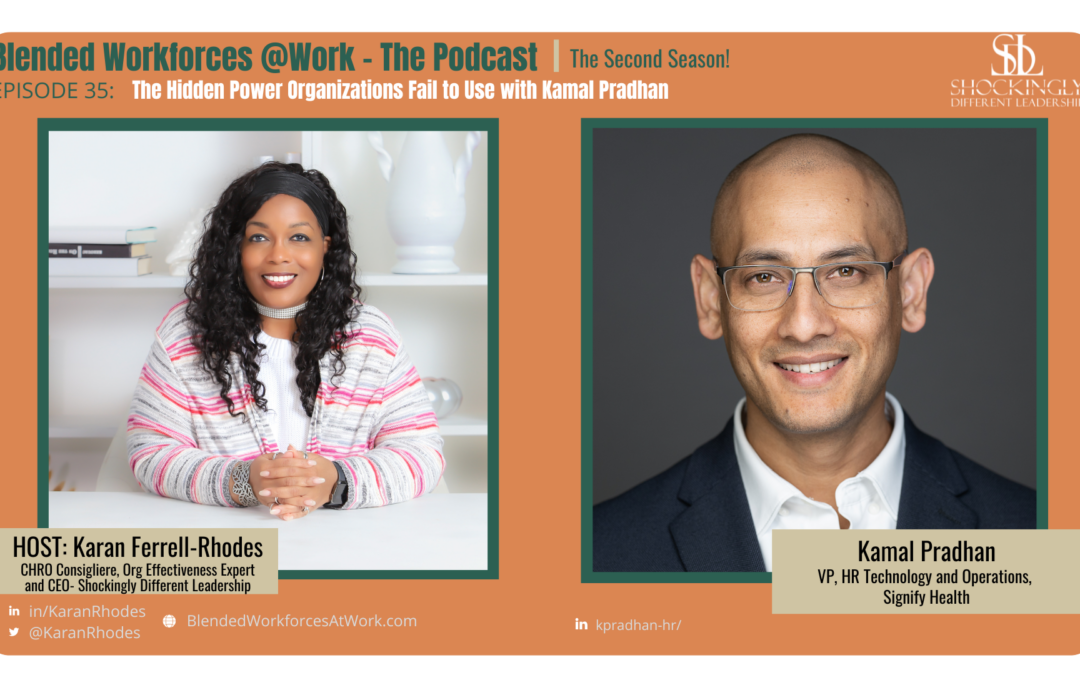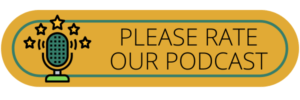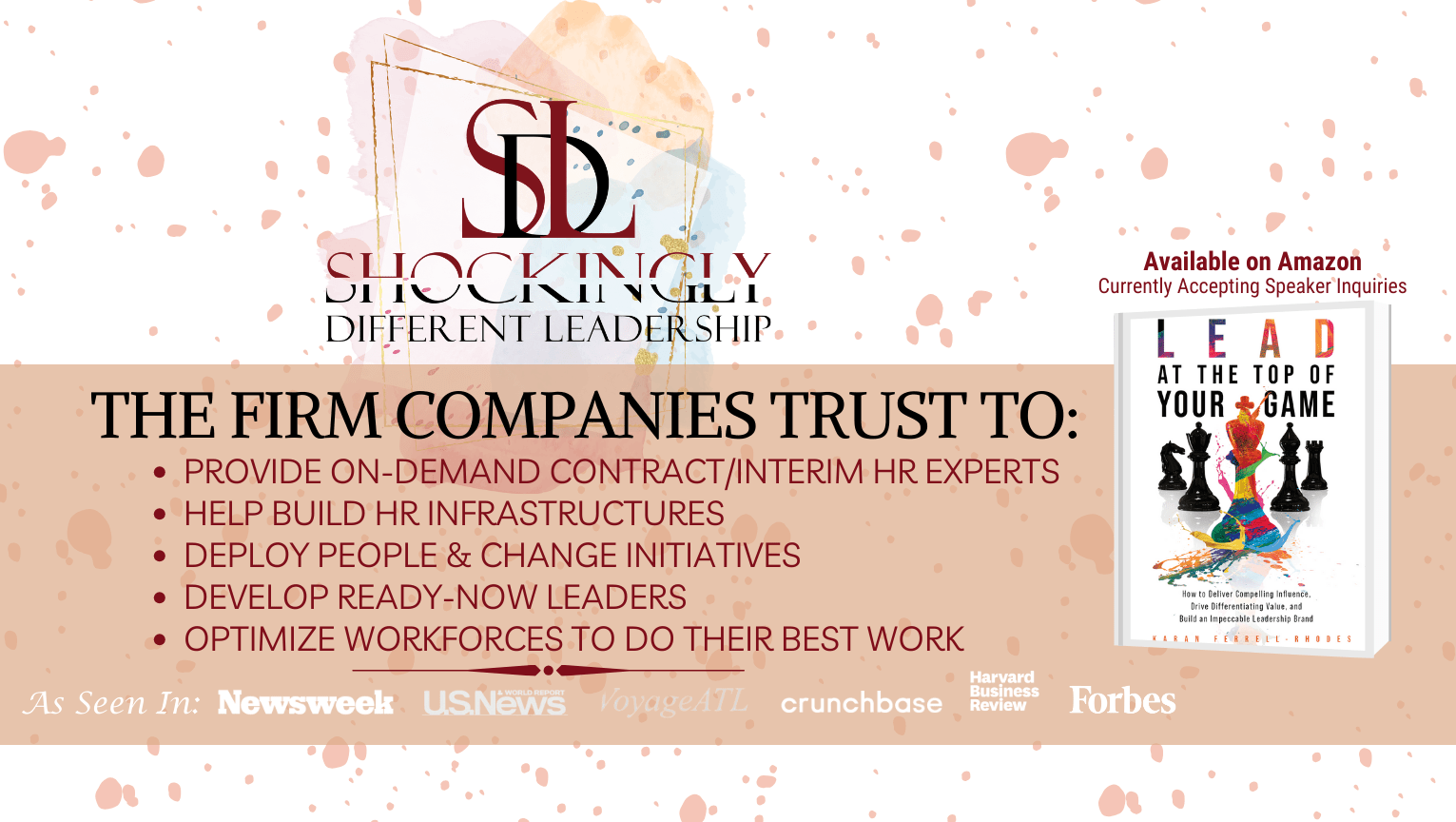IN THIS EPISODE, KARAN FERRELL-RHODES INTERVIEWS KAMAL PRADHAN.
In this conversation, Kamal shares insights on blending workforces, integrating technology, and the evolving role of HR in a digital era. He highlights trends in remote employment and the challenges of HR technology implementation, stressing the importance of stakeholder involvement and user experience.
Kamal also discusses the strategic role of people analytics, board oversight, and the need for holistic HR governance. He concludes with thoughts on courageous agility in leadership, advocating for adaptability and informed decision-making.
Kamal Pradhan is a distinguished HR executive and the Vice President of HR Technology and Operations at Signify Health.
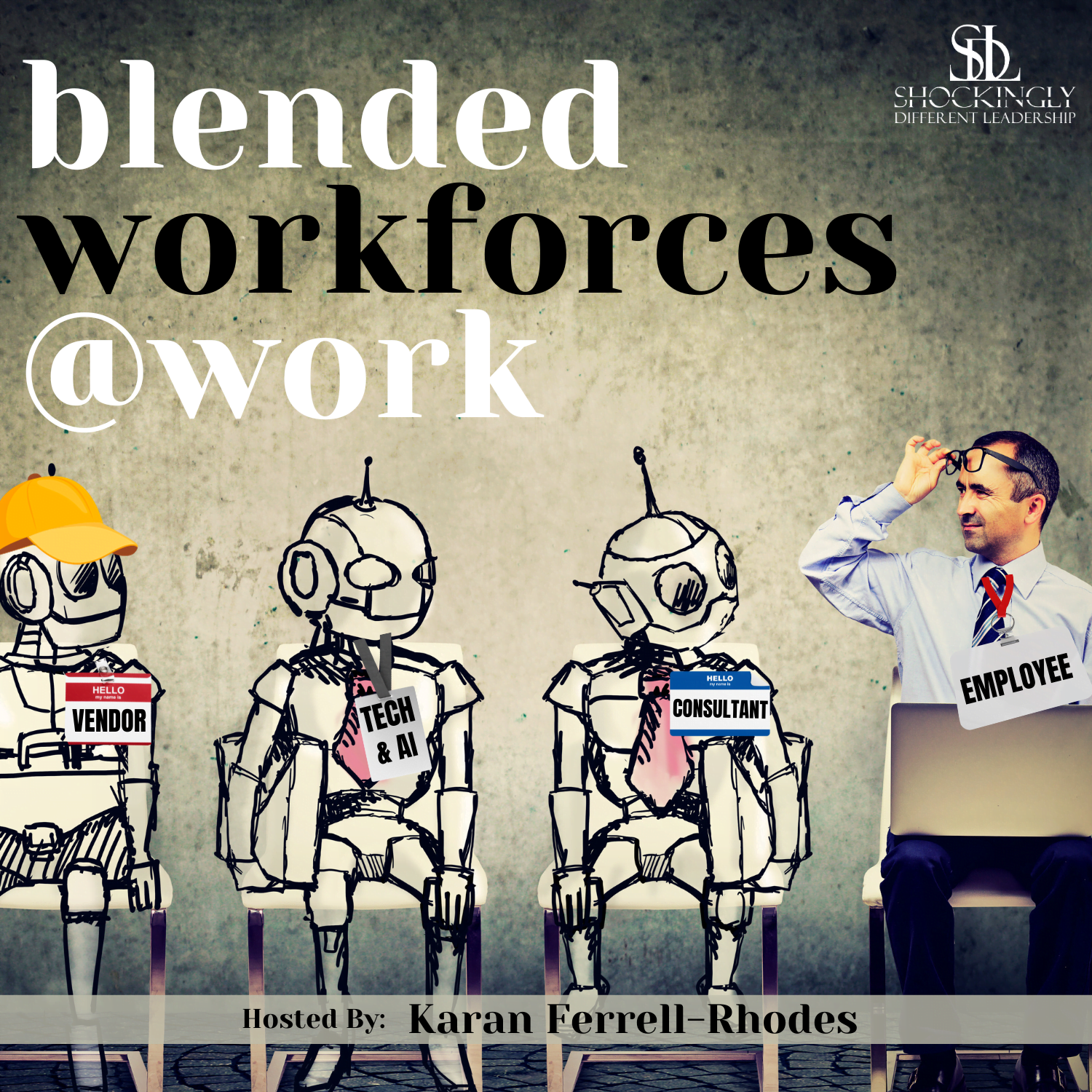
Posted by
SDL Media Team
Rather view our video podcast?

WHAT TO LISTEN FOR:
- How has COVID-19 impacted remote work and technology adoption?
- What are the challenges in implementing HR technology?
- Why is it essential to involve key stakeholders in HR technology implementation?
- How can people analytics help organizations with talent management?
- What role does HR governance play in business strategy?
- What is courageous agility in leadership?
- Why is flexibility necessary in leadership?
- What is micro-informed leadership?
“You need to start thinking about having a global mindset.”
FEATURED TIMESTAMPS:
[01:46] Guest Introduction
[03:38] Kamal’s Personal Life and Well-being
[09:41] Blended Workforces and Technology Integration
[18:08] Signature Segment: Kamal’s entry into the LATTOYG Playbook: Bridging the Gap in Tech Implementation
[22:17] The Role of People Analytics and Board Oversight
[27:29] Signature Segment: Kamal’s LATTOYG Tactic of Choice: Leading with Courageous Agility
[32:48] Connect with Kamal

ABOUT KAMAL PRADHAN:
Kamal Pradhan, SHRM-SCP, is a seasoned HR executive currently serving as the Vice President of HR Technology and Operations at Signify Health. With a proven track record in global HR transformation, Kamal is recognized as a visionary leader who has successfully driven strategic overhauls in HR functions across diverse sectors. His expertise aligns HR practices with organizational goals to enhance business success and promote a positive employee experience. Kamal is dedicated to leveraging technology to create seamless HR processes and improve talent management, making him a respected figure in the HR community.
Kamal holds a Master’s in Computer Information Systems and a Bachelor’s in Electrical Engineering.
When he’s not working, he’s off to outdoor adventures with family and friends or on the mat practicing Brazilian Jiu-Jitsu.
LINKS FOR KAMAL:
LinkedIn: linkedin.com/in/kpradhan-hr/
ADDITIONAL RESOURCES FOR YOU:


Episode Sponsor
SDL is the go-to firm companies trust when needing to:
- supplement their in-house HR teams with contract or interim HR experts
- implement leadership development programs that demonstrate an immediate ROI and impact on the business

Episode 35 | The Hidden Power Organizations Fail to Use with Kamal Pradhan
Kamal Pradhan 00:00
The right stakeholders are missing number one. So usually it’s only HR folks or executive it could be a CFO or a chro who know the business but don’t know the technology. In some cases, I see CIOs, who are technology focused, going for the same product, but then the folks who actually use it are missing in the equation.
Karan Rhodes 00:01
Blended workforces are one of the hottest talent strategies today, where employers are using a mix of traditional employees with external resources like independent contractors, coaches, consultants, vendors, and technology solutions, all in order to enhance competitiveness, ensure cost flexibility, and expedite business goals. But how are the successful companies infusing blended workforces into their business strategy? And what are the critical success factors and pitfalls to avoid during implementation? And on the flip side, what does it really take for suppliers to improve their chances of finding and landing contract opportunities? The devil is in the details, my friends! I’m your host, Karan Ferrell Rhodes, and it’s time to get smarter about Blended Workforces at Work!Hello, my superstars. This is Karan, and welcome to another episode of the blended workforces at work podcast. We have an extremely special guest today. I will just personally share we had a brief pre meeting and couldn’t get off the zoom just chatting. So I know this is going to be an absolutely fabulous episode, and something that is very pertinent for us to be considering, especially in today’s world as it relates to the workforce. And we’re so pleased to have on today’s show, Mr. Kamal Padan. I hope I said his name correctly. I’ve been practicing Kamal Pradhan. And Kamal is the VP of HR technology and operations at signify health. And for those who don’t know, signify health is a leading healthcare organization that focuses on bringing comprehensive and personalized health evaluations directly to people’s homes. And you know, all of us need that, so you definitely need to check out the great work that signify health is doing. But the reason why I was really passionate about having Kamal on the show is because he and I both share a love for really optimizing HR and talent infrastructures and combining people, strategy and technology, you know, all in the hopes of making work work for everyone and the times that we live in now. You know, there’s a lot of pivots and shifts that organizations are having to make, and he and I were going to dig into that a little bit more and kind of share our perspectives with you. But welcome to the show, Kamal!
Kamal Pradhan 02:25
Thank you, Karan, for having me, and I have to say, you know, been a big fan, listened to your podcast for more than a year or so, and I know you’re a world renowned figure when it comes to people, culture and leadership, so pleasures all mine, and really honored to be here.
Karan Rhodes 02:42
Thank you. Thank you so much. You know, I’m just doing what I can to kind of up level the talent agenda, or the focus on companies talent agendas, and you know you’re a Kendrick spirit in that space as well. So thank you for the gift of your time today. Now you know I cannot wait to jump in our conversation, but before we do so, we always love to learn a little bit about our guests on a personal level. So for just as much as you feel comfortable, would you mind just giving us a sneak peek into your life outside of work?
Kamal Pradhan 03:13
I love it. I love it. Karan, I think that’s how we start so very simple. I’ve got two boys, eight month old and seven year old. I think parenthood is something that unless you experience it’s hard to explain in words, right? It’s tough, it’s rough, and it’s the most rewarding and fulfilling job and responsibility in a life you could ever imagine. Right? So my life outside of work revolves around them, my wife, my family and very close to my parents. So a typical weekend starts with cycling with my older one. I’m a big foodie, so we like to go try different cuisines, and based out of Dallas, so we have been growing quite a bit in the food scene. You know, Atlanta was pretty good at one point, but I think Dallas is caught up, you know, with
Karan Rhodes 04:03
I know you’re up and coming in Dallas,
Kamal Pradhan 04:06
Yeah, and we have an influx a lot of folks from all over the states, international, so food, lot of outdoor activities. Years ago, I’ve been out probably a year or so, but practicing Brazilian Jiu Jitsu, personally, for me, we hit the gym together as family. So I think it’s really focused on health, good food and really being together. So yeah, I think 90% time, that’s what I do, and and the rest of 10% outside of work, this is what I love doing, is being, you know, bringing passion of not just the work, but something I do. And I really value of that. We all, no matter what work we do, we have to have that personal side that is unpaid, but that comes from within, that we’re making world a better place. Maybe, you know from the workplaces, that’s where you and I are focused on, but that’s in a nutshell. Karan,
Karan Rhodes 04:58
I love it. I love. Love it. And if I can just take a point of personal privilege, you are so kind enough to share that you do a lot of things for yourself to keep, I’ll just say work life balance, since that’s the buzz word. But just to up level your personal well being. And I the reason why I mentioned that is because, you know, a lot of our listeners are in the world of work right now, it is very stressful, and it’s so important to take time for yourself to make sure that one stays very centered and balanced to the best of your ability, because you can’t be your best self at anything if you don’t come as your best self and take care of yourself. So I just wanted that kind of side point a note to be included as well. I don’t know if there’s anything you want to chime in on that, but I do.
Kamal Pradhan 05:45
Thank you. Thank you. Yeah, no, I know. We briefly chatted, and I you know. So let me start with this. I’ve been meditating for the past few years. It’s the hardest thing I’ve done, one of the hardest things. It’s hard to focus even for a few minutes. But this year, thanks to my wife and my family and my kids, they gave me the support. So I went on a 10 day meditation, silent meditation course here in Texas. And rather than faith, it was really around learning the skill how to meditate well, and that is very I think, one of the key things that we do as a family, even with my seven year old and my wife really being a big meditator as well. So the way I look at it is, yes, that’s great, but you know, the balance around, even if we take the work equation personally, like physical and mental health, like there’s no they’re all in, they’re blended, I think, together when it comes to making us whole. And every time I hear people talking about, oh, you know, I want to be a millionaire or a billionaire, and I want to have a house and everything, right? But, yeah, I really see people talking about, you know, what, if you had to put a number to your health? Is at the age of 2030, 4050, there is really a no number, you know, it could be in billions. Like, how you should value your health, right? So, if your new year resolution was, I’m going to be a millionaire when it comes to my well being and my health. Like, how wonderful would that conversation be, you know? So I feel like that’s something I started my actually, I do video clips on LinkedIn. And I was like, I want to talk about health and mental well being. So yeah, so the journey has started. The Toast 10 days that I did was extremely hard, no talking for 10 days with anyone, no eye contact, 10 hours of meditation, staying away from family, you know, no meat. So it’s just like staying away from all the pleasures that we are distractions to, you know, and I think I’m at a better place. But this is just the beginning.
Karan Rhodes 07:45
It’s amazing. And so listeners, you know what? Kamala is an executive, and he carves out time to make this happen. We could probably do it. We’ve already joked we’re gonna have to do a series of podcasts on him, because he has some great stories to tell. Because I wondered how he balanced work and the silent meditation, but we’ll say that for a different podcast. But it was very, very commendable. Come on. Well, I love to jump in to kind of the meat of our conversation, but I’d love to start off because, you know, as we define it here on the podcast, blended workforces is a the mix of ways of how work gets done. We particularly highlight kind of your traditional ways with full time employees and that structure. Second leg of the three legged stool is using external talent, so your vendor, suppliers, freelancers, you name it. And then the third piece is technology. And you have a unique perspective, because you kind of dip your toes in the water probably a little bit in all three if you happen to use vendors in their platforms, but definitely from the employee side and the tech side, you live and breathe it every day. So I guess my first question is, at this point in time, What trends are you seeing and how maybe just signify health, or how your colleagues are thinking about combining leveraging technology with both internal and external talent within the organizations they work in?
Kamal Pradhan 09:15
Excellent question. Karan, so let me start by saying, you know, one of my favorite conferences that I go to is HR technology conferences that happens, usually in Vegas around September, October, and I meet a lot of vendors, lot of industry analysts, and obviously a lot of company representatives and leaders in this era of supporting HR. And in the common theme there is that, and then also the change that I’ve seen is there’s no traditional model anymore to say I have 100 FTE or part time employees, and that is how I’m gonna reach or how we’re gonna reach our goals as a company. The reality is that that success comes with. Participation from your gig workers or your vendors or manage support teams. And I’m not really advocating that we have to offshore or outsource, you know, but even if it’s here in the States, at least 16 to 20% is the number I see in any organization mid size where you are relying on that vendor, or you are relying on that external talent, that’s right in so many ways, right and and then I want to bring the technology piece is that COVID was like it was that I want to say the moon landing for for an organization, is to say everything that companies were trying to do, the technology teams were trying to do, and there was leadership pushback, or, you know, different teams weren’t ready. And HR also had to make that leap right? It all had to happen schools, at workplaces, and right now with, you know, zoom and Cisco WebEx and teams and every tool out there. There’s never a question that a job cannot be done remotely. That’s right, using technology. So that’s another equation that we see that the blended workforce has come in. I don’t think we’re fully ready for like a global workforce to be part of every organization, because I think we are still in in this, you know, bordered economy, right, where the the dollars do travel, but the talent, I think that is with the compliance, with GDPR, you know, with CCPA, all these different compliance activities that we have in state or country based. So that’s a longer route, but at a nutshell, vendors, for sure, external talent technology, bringing the remote talent in, and then you have your core employee group. Yeah. So I think that’s where we’re seeing that evolution.
Karan Rhodes 11:59
Kamal…I’m not pushing back on you, but I push back on some of the organizations thinking, because you’re right that right now they’re not quite ready to, or the majority to really have a global mindset as it comes to, I’ll just say HR, technology and business, but I will say they’re going to have to get ready Pretty soon. Because I don’t, you know, most industries are thinking more broadly and are taking into account needs to operate in outside of their borders, no matter the US or other countries or what have you. So I think this is just Karan perspective. I think a focus on readiness for expansion and scale, even if you’re not planning on doing it right now or next couple of years, just thinking in the terms of getting your strategies and workforce ready is going to be really critical. So, but please feel free to throw tomatoes at that, thinking, What are your thoughts?
Kamal Pradhan 12:57
I love it, and I actually agree with you, you know, honestly, so I think that. So last night, I had a really good conversation with a good friend and someone I truly respect, and he’s actually, he was based out of the US. He’s been an entrepreneur, and, you know, out of Nepal right now, and he’s got excellent products that he builds. But the conversation was truly around. We talked about Dei, we talk about all of this, but end of the day, every business has to thrive, and every business has to provide equitable opportunities to, you know, the general public, that’s right, and how does that happen? And that was the conversation, and I’m going to use a good example, which is the Earn ways, access, right? Ew, is something that I know a lot of some states are ahead. Some states are thinking about it is to make pay accessible before the paycheck comes in, right? You know? And what enables that? Obviously, there’s policies and the states, you know, being ready for that. But if the company is ready, and they are ready to embrace that technology, then you’re right there. So what you’re saying is that even if you’re going to do it a few years later, you have to be able to think about have a strategy in place on how are you going to have the policies, how are you going to have the technology in place? You need to start thinking about that global having that global mindset. That’s really and the reason I mentioned my friend is that there was a very good example that you shared, is just like daily paid this, like earning, earn ways, access technology that exists. He’s creating a borderless payment system. So if you think about remedly, if you think about Western Union, like you’re moving money, right? But it takes time, and then on the country’s infrastructure, in terms of banking system and all that. But what if somebody on the other side of the world had the talent and was ready to work with your organization, but now you stop, you know you’re stuck with how do I do transactions with them? Right? But what if you had the technology where they can open. In companies, and they can have that infrastructure to be able to move money, you know, following every compliance requirement on both sides of the world. And now comes the talent piece. Now everything’s done, it’s, you know, these companies will have access to talent. These companies won’t have lot of reasons not to do that, right? And you don’t have to depend on, you know, this outsourcing concept that’s been going for years, and it’s saturated, to be honest, right? Every country you go to India, and, you know, outsourcing was such a big item, and it went from the 80s, 90s really peaked in or 2000s and now we know that India is actually very expensive comparatively to and now we go to Philippines, so we’re seeing that South America easing out. Yeah, you’re right, and now we’re looking at the talents. Which you touched on is that we all have to think about talent. How do we get access, if that’s our key piece to the puzzle to be successful. Sorry, I went in a tangent here, but I just wanted kind of great English. Innovation happens all around us, and it impacts in so many ways. End of the day, it impacts the ways we work, the way we pay people, the way we are successful. And it all comes to a blended workforce.
Karan Rhodes 16:18
That’s right, that’s right, where I see Kamal, a huge gap is and I’ll go back to that whole readiness conversation I mentioned when, and I’m going to be stereotypical here. So please forgive me, but when I do a lot of organizational strategy and transformation in people, infrastructure work, so those big, meaty initiatives that companies have when they’re trying to scale up or scale down and all that, that’s that’s what our firm does a lot of, and where I see a big roadblock is matching work flows with technology, meaning they have a big idea that they want to implement a piece of technology. It looks pretty because it has a lot of bells and whistles, but there’s not enough due diligence to match how they typically get work done with what they’re hoping the technology to will help them accelerate or accomplish faster. And there’s such a big ramp period between the time purchase to deployment, it’s almost crazy, and then that’s when, you know, people and executives are like, was this really worth it for us to get through? So could you talk a little bit about, you know, you, you know, being in this space, Where are areas of opportunity to make tech implementations better?
Kamal Pradhan 17:42
Sure. And I’ll give you the my perspective from an HR side, because since we are in the people in cultural world, right? So a typical, you know, we use this term called Enterprise Resource Planning, especially in the corporate side of the world that touches finance. Yeah, it legal HR, and basically it’s the way we function, and how do we move data around? How do you know, like you said, how do workflows come into picture, from finance transactions to HR transactions, and how all of those categories result in analytics, right? And that help with the earnings that help with the QBRs, with a quarterly business review. That’s how actually we are much more efficient. And depending on the size of the company, you know, we look around a minimum one year, it can go to 18 months, even further, but that’s just implementation time frame. What you touched on is, before we even get there, there is a RFP process right on what actually, What tool do we really need? And how do we go through the vendor selection process and who should be part of that? That’s right, that whole thing is flawed Karan, in my mind, So
Karan Rhodes 18:56
yeah. What do you see? What are some example areas of how it’s flawed?
Kamal Pradhan 19:00
Oh, for me. You know, if we’re picking an HR product that is going to use enterprise wide, I see that the right stakeholders are missing number one. So usually it’s only HR folks or executive it could be a CFO or a chro who know the business but don’t know the technology. In some cases, I see CIOs, who are technology focused, going for the same product, but then the folks who actually use it are missing in the equation. Yeah, yes, yes. So that’s the biggest piece. Like, if you start out wrong, you’re going to end out wrong. That’s I mean, unless something magical happens. So having the right stakeholders and do an org assessment in terms of what is the need, what are we trying to solve, and who are those key champions across enterprise, from a technology standpoint, from a compliance standpoint, from a legal from HR, bringing the key. Champions to that mix and saying, This is what we’re trying to solve. And I think that scope has to be clear when we know that, because there is no magic technology out there. You know that is always something like a work day has really good user experience, but in the back end has still a long way to go. Yeah, and there are companies like people software phasing away because they had really good back end structure, but their user experience was hard, so it just didn’t work out right. So I feel that, yeah, and end of the day for HR, the use case I want to think about is we all care about our candidate experience, the talent we’re trying to pull in, attract, go through onboarding, and then we care about our employee experience. Those are our metrics, not just the dollars we’re spending or the dollars we’re saving. So once we have the stakeholders ready, I think those have to be defined, and I see there’s a big gap on companies missing out on it. Yeah, you know, it just either becomes a financial number or it becomes on how soon can we get it, or can we have some savings? And it’s really focused on being mechanical, but it should be focused experience. So that’s another big gap that I truly see, and then that’s where I actually help support companies
Karan Rhodes 21:20
I love that. I love that you said that so eloquently. Boy, if you could figure out a way to fix even that one thing for companies, I think you’ll be the multi trillion dollar man, because it is such a challenge, and that is, it’s a challenge for enterprise level companies. So can you imagine for your small and medium sized businesses what they’re going through, you know, the especially those who have significant workforces of maybe 1000 plus. I mean,
Kamal Pradhan 21:51
Absolutely. And you know, the race, especially if we look at in the mainstream, is that finance is caught up, yeah? Karan, yeah, right, because no one wants to mess up with the, you know, dollar amounts, right numbers, accurate marketing is caught up, because they’ve embraced technology from an HR side, even during HR tech conference, I see only 100 plus analysts who really make to the top. So imagine in a population of 300 plus million people with so many Fortune 500 companies, there are a handful of people like me, and I’m not advocating for it. I feel like I want more people who can bring HR technology and employee experience to ensure that, end of the day, we have a strategy for good talent to stay in the company, to grow that talent, and also making sure that providing the analytics in such a way so that our leadership team, from CEOs to the boards, have a clear path forward to say we’re not going to hire 20,000 people and then fire half of them six months down the road, right? It’s really like, it’s not, I can’t just blame one group, right? It’s a lack of things exactly. It’s lack of coordination. So I think that this group that really supports talent can do that, and that’s something that I’m passionate about. So not just being as a thought leader. This is what I do day in, day out, is help leadership and companies at every level to think about this.
Karan Rhodes 23:25
I love that, and I try I do the same as you know, and but one of our new areas of focus in our business that we’ve added over the last couple of years is also helping at the board level of companies really understand how to best do HR governance and oversight so that they can keep a critical eye out on the big picture as it, you know, impacts business strategy and profitability and shareholder value for those that are are being traded. But even if you’re a private company or a nonprofit, you still want a good turn on investment within whatever industry you’re in. And so I’m trying to, you know, hit it from the organizational perspective, but then also raise the priority of oversight on the board levels as well. Because if you have both, you know, I think that that will help give a lot of air cover and assistance to HR leaders and HR tech leaders to advocate for what they think the company needs. So
Kamal Pradhan 24:27
I love it. And, you know, I think the conversation Karan, right? Lot of times like, who wants to hear from HR technology folks tell me relevant conversation, unless you really need the tech right? So, it’s like, implement it. It’s working. May not be the best, and then you’re out of the picture. But what I’ve seen in the industry right now is people analytics has taken off. It’s really bring data science to figure out your pulse and your talent. That’s right. On where you have maybe leakage and payroll or or you’re losing your talent, how you’re bringing in talents. I think that’s the good news, but I feel that we still have a long way to go to have one proper conversation. And when you mentioned like having that insights with the board members right to be able to take the organization to the next level. Is it’s really about it’s a talent war. End of the day,
Karan Rhodes 25:26
It is, you get the nail right on the head. Yep, it is definitely a talent war. Geez. Well, Kamal, literally, I believed it. I cannot believe we’re almost at time. This is why we need a series. We need to have a series of 10 of these. I’m just
Kamal Pradhan 25:41
Good.
Karan Rhodes 25:42
We have a lot more that I wanted to talk about, so we’ll stick a pin on that till next time. But before we let you sneak out of here, you know, we always have to ask a signature question of our guests. And for my newer listeners out there, my firm did some research on high performing leaders and what is commonly they do to make sure that they’re at the top of their performance. And since they’re speaking to a great leader on the line, and we had to, you know, ask them all, which of the seven buckets that came out of our research really resonated with him, because all of them are equally as important. You use them at different times and in different ways. But he was so kind to share that courageous agility really struck a chord with him and newer listeners, courageous agility is all about having the courage and the fortitude to and I’ll say grit, to analyze data that you get, take calculated risk, but still move forward, even if the future is uncertain or unclear. So it’s all about you know, taking the information you have, the best information possible, but still taking those baby steps forward and standing up for what you believe in and what you’ve you know, know and your expertise and research the Kamal curious minds would love to know, why does courageous agility resonate with you?
Kamal Pradhan 27:03
Allright, Karan, I’m going to answer little slightly different. Let me give you some context
Kamal Pradhan 27:07
Before I answer that. So my last name, Pradhan, basically in my language, which is Nepalese, means chief. And I was based out of Kansas City for more than 12 years, and have been supporting Kansas City Chiefs, you know, since that time, and probably will continue to do that. So I witnessed them winning, you know, Super Bowl last three times, and especially, you know, the time where they won against the Eagles.
Karan Rhodes 27:07
Yeah
Karan Rhodes 27:07
Ok. Sure.
Kamal Pradhan 27:12
You know, it was a good moment. I didn’t think much of eagles. At that time, Jalen Hurt was there, you know. And past weekend, my son was ready with his take and all the things, waiting for chiefs to win and and obviously, you know, they were the better team will always support chiefs. But what I saw, especially in Jalen’s leadership, was a couple of things I noticed was the way he was calm and patient even when he was winning, dissimilar to when he was losing few years ago, and the way he credited his team and, you know, and obviously his family being humble, right?
Karan Rhodes 28:17
Very humble.
Kamal Pradhan 28:18
And when I think about all of this, I thought about courageous agility, because she had said, from the time he lost, he was waiting three years and continued to work even not knowing what the future may look like. Because winning Super Bowl is not a one person thing. It’s it has so many things for the stars to be aligned, you know, and and so I use a similar mentality is you have to be a fluid meaning, if you work in technology, for example, lot of companies are very rigid. We call we use the word waterfall approach to say, you tell me what you need. I’m going to first listen to it. I’m going to build it, test it. By the time I build it, you’re off to another world, you know? And right? So that means you have to be agile, but you have to be courageous enough to say, as a leader, hey, I was slow. I need to pace up and be the example for your team to say, we’re going to switch the gears here. We’re going to address our flaws and our thinking. So I think having the courage to do that be wrong, having the courage to be flexible, to make the change and be agile enough to move forward, everything that Jalen heard did. And the other piece I want to add is I heard once from a leader to say, I don’t like to micromanage. However, I love to be micro informed. And in this case, I known for sure. Jill knew that who had the flaws and who had the talent at that point, right? So he was micro informed of every. Every single thing. And that’s kind of something that I practice, not just I preach. So I think for me, courageous agility means all those things, and being able to be informed every piece of the way. And when I say micro informed, I think about the example of CrowdStrike was that
Karan Rhodes 30:18
Disrupted the world.
Kamal Pradhan 30:21
You have to be micro informed,
Karan Rhodes 30:22
yeah,
Kamal Pradhan 30:22
And your leaders have to be micro informed for such things not to happen, right?
Karan Rhodes 30:27
Absolutely.
Kamal Pradhan 30:27
So, like, that’s probably my mantra right now,
Karan Rhodes 30:30
I’m gonna have to use that more. I have heard that phrase, but I wrote it down just for because it can use it in so many ways. Don’t like to be micromanaged, but do like to be micro informed, because that information is what’s going to be key your leaders making their next best decision, and they need that information to do that.
Kamal Pradhan 30:47
Absolutely. Karan, and one thing I see a lot is that in teams, especially the bigger you go, in different teams, right? Everybody’s there to win, yes, and sometimes when you’re so eager to win and make that record, that means you’re gonna win for your goal, but as a group, you’re gonna fail together. You’re gonna win separately. You’re gonna together, right? And I think for us to win together, you have to be courageous and agile together and have the same goal. And I think this is going to be a long run for all of us, but even for us to win together in this environment where stock market changes every day, policies are changing, weather is changing. Right is that we have to be agile enough to take care of our health. No matter what happens outside, we have to be agile enough to be set, you know, taking care of what our priorities are, our mental health well being, our physical our financial well being. So I think the end of the day, this not just applies to workplaces, but all of us,
Karan Rhodes 31:53
I so agree, and we’re gonna have to just drop the mic on that piece of tidbit right now. That was fabulous, a fabulous share. And come all you know, we’re going to have, obviously, information about your bio and links to where people can find you and signify help if they would love to learn a little bit more about the company. But in the meantime, would you mind? I’d love to give you a little Eric time to share. Where can folks find you and follow you and they want to learn more about some of the insights you share.
Kamal Pradhan 32:22
Absolutely. Thank you. Karan, very simple. The only place where I’ll be, you know, sharing these kind of insights, and I’m very active, is LinkedIn. So if you look for my name, it’s Kamal Pradhan, and, you know, based out of Dallas, Texas here. So you’ll find me in LinkedIn, and you can reach out with any questions and if you want to chat. But you know, I feel my personal passion is to make workplaces better for my generation, the current generation, in all different aspects, and the future one as well.
Karan Rhodes 32:56
That’s where we are so kindred spirits. Well, thank you so much again. Come all for coming on to the show. We’ll just have to, you know, bring you on again. You already know that, but this has been a very fantastic talk with you, and I can’t wait for our next one to be honest with you,
Kamal Pradhan 33:13
Thank you Karan. Thank you Karan, hope you continue to do this and spread the awareness and the knowledge among you know this fraternity of HR leaders and the folks, so thank you. I appreciate you
Karan Rhodes 33:27
Absolutely. Thank you, and thank you to listeners for the gift of your time, as well as we always love to say we did not take your patronage lightly. We truly appreciate you. We all that we ask is that you like and subscribe to the podcast and just share the podcast with just one friend friend, so that we all can get smarter about blended workforces at work. Thanks a ton, and see you next week. Well, that’s our show for today. Thank you again for listening to the Blended Workforces at Work podcast. You can check out the show notes, additional episodes, bonus resources, and also submit guest recommendations on our website at blendedworkforces@work.com. You can also follow me on Twitter, LinkedIn, Instagram or YouTube by searching for the name Karan Rhodes with Karan being spelled K a r a n. And if you like the show, the greatest gift you can give would be to subscribe and leave a rating on your favorite podcast platform of choice. This podcast has been a production of Shockingly Different Leadership, a global consultancy which helps organizations execute their people, talent development, and organizational effectiveness initiatives on an on-demand, contract, fractional, or project basis. Huge thanks to the SDL production and editing team for a job well done. Bye for now.

Want to be a Podcast Guest?
Check out our guest qualifications and submit our brief form to be considered.
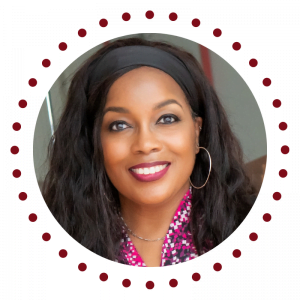
Want Karan to be Your Podcast Guest?
- Blended Workforces & the Gig Economy
- Critical Execution Tactics of High-performing Leaders
- Entrepreneurism & Leading Your Business

Want to be a Podcast Sponsor?
All sponsorships come with a featured spot on show notes pages.
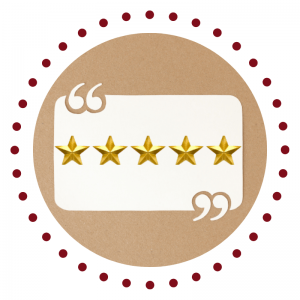
Like the Show? Please Leave a Review
If you like the show, it would mean the world to her if you left a quick review.
Your word is golden, so a HUGE thank you in advance!

#KeepInTouch
via our podcast alerts
Subscribe now to discover why thousands of monthly listeners who are passionate about doing their best work prioritize time each week to listen to the Blended Workforces @Work podcast.
#AboutSDL
#WhereToFindUs
MAILING
4480-H South Cobb Drive
PMB 219
Smyrna, GA 30080
PHYSICAL
2121 NewMarket Parkway
Ste. 108
Marietta, GA 30067
#ContactOptions
Customer Service Email:
service@shockinglydifferent.com
Call or Text:
770-384-1103
#Office Hours
MON-FRI
8:30 AM – 6:30 PM
Weekends By Appointment

